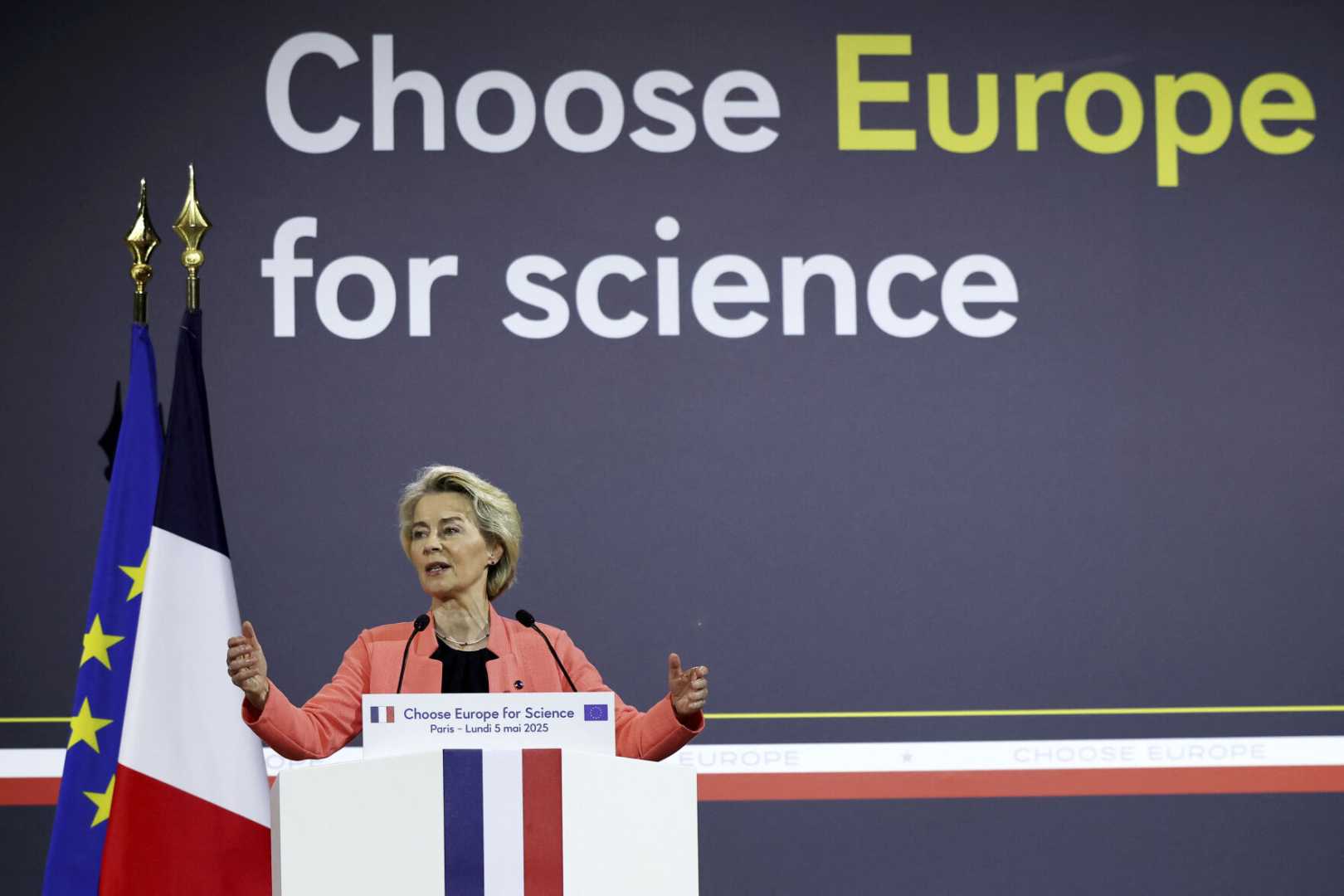News
EU Offers €500 Million to Attract Scientists Amid U.S. Funding Cuts

PARIS, France — The European Union and France announced on Monday a €500 million ($566.6 million) initiative aimed at attracting scientists to Europe. This effort seeks to capitalize on U.S. President Donald Trump‘s funding cuts to American universities and perceived hostility toward higher education.
French President Emmanuel Macron made the announcement at a press event held in Paris‘ Sorbonne University, emphasizing a call for global researchers: “If you love freedom, come and help us stay free,” he stated alongside European Commission President Ursula von der Leyen.
The funding package is designed to support research projects and assist universities with the cost of recruiting international scientists. Von der Leyen outlined plans for EU member states to invest 3% of their gross domestic product in research and development by 2030, noting the critical importance of science to democracy.
Macron also pledged an additional €100 million from France’s budget but was unclear if this amount was part of the overall EU commitment. The announcement arrives as Trump continues to challenge U.S. universities, which he accused of harboring what he describes as antisemitic and radical left ideologies.
Robert N. Proctor, a historian at Stanford University, criticized Trump’s tactics, describing them as “a libertarian right-wing assault on the scientific enterprise.” He projected a possible “reverse brain drain” where scholars could migrate not only to Europe but also to regions like Canada and Asia.
Meredith Whittaker, president of the encrypted messaging app Signal, refrained from commenting on political disputes but echoed Proctor’s sentiments, stating that top talent would naturally seek environments that foster academic inquiry without threats.
Political leaders in Europe are hopeful that current challenges in the U.S. will enable Europe to attract intellectual resources but face significant hurdles as European universities generally lack the financial clout of their U.S. counterparts.
In a broader scope, von der Leyen plans to introduce a “European Innovation Act” and a “Startup and Scaleup Strategy” to reduce bureaucratic hurdles and enhance access to venture capital for scientific initiatives. Macron’s remarks highlighted the urgent need to secure a supportive environment for researchers in light of attacks on academic freedom.
Both leaders reiterated the long-term goal of making Europe a “safe haven” for scientific research. The initiative aims not only to secure the future of research within the EU but also to welcome eminent scientists worldwide, countering the ongoing challenges posed by the current U.S. administration.












